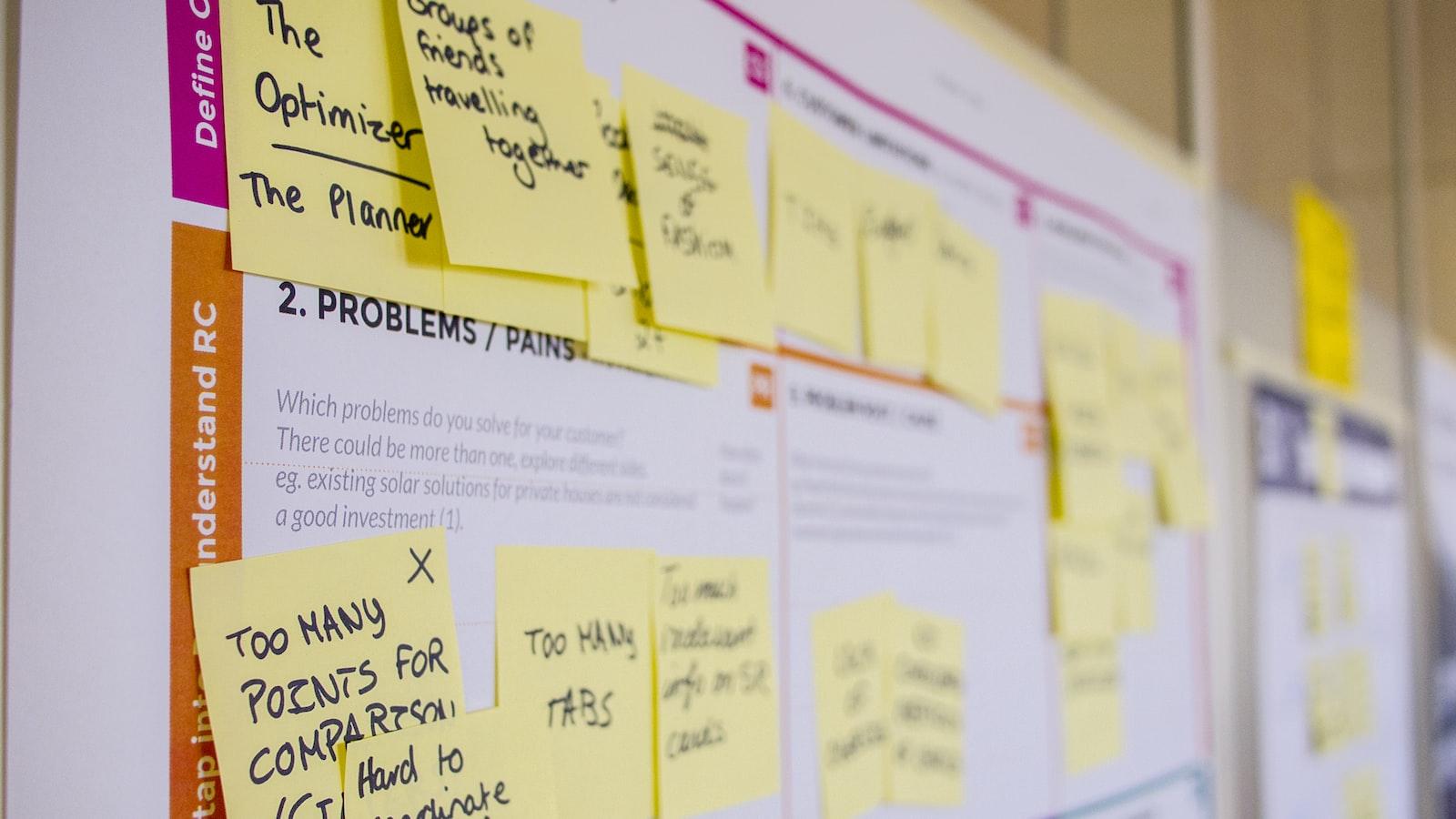Embracing Change: Why Joomla 5’s Requirement for MySQL 8 is a Leap Forward…

In the vast digital realm where technological evolution is as constant as the ebb and flow of time, there emerges a truth that we, as passionate and intrepid web developers, must confront: change is the only constant. It is amidst this ever-evolving landscape that Joomla, the powerful and versatile content management system, unfurls its wings to embrace a new era of possibilities. With the imminent arrival of Joomla 5, a brave and ambitious leap forward is underway, an evolution that demands the embrace of the latest database marvel: MySQL 8. In this article, we will unravel the significance held within this symbiotic synergy between Joomla and MySQL 8, as we delve into why this requirement marks a watershed moment, propelling web development into uncharted realms of efficiency, security, and innovation.
Embracing Change: The Advantages of Joomla 5's MySQL 8 Requirement
With the announcement of Joomla 5's requirement for MySQL 8, the Joomla community is ready to embark on a new era of efficiency and performance. While change can sometimes be met with resistance, this move is a definite leap forward for Joomla and its users. Here are some of the advantages that come with embracing this change:
1. Improved Performance: MySQL 8 brings numerous performance enhancements, making Joomla 5 faster and more responsive than ever before. With optimized query execution and improved indexing, websites built with Joomla will enjoy reduced loading times and smoother user experiences.
2. Enhanced Security: Security is always a top priority when it comes to content management systems, and Joomla 5's requirement for MySQL 8 is a step in the right direction. This latest version of MySQL comes with advanced security features such as improved authentication methods and encryption options, providing an additional layer of protection for your Joomla site and its valuable data.
3. Increased Scalability: MySQL 8 introduces new scalability features that allow Joomla websites to handle higher loads and accommodate larger user bases. With improved resource management and support for larger datasets, Joomla 5 will be well-equipped to handle the evolving demands of modern websites and their growing user communities.
4. Compatibility with Modern Technology: As technology continues to evolve, it's important for content management systems to keep up. Joomla 5's requirement for MySQL 8 ensures compatibility with the latest hardware and software advancements, allowing users to take full advantage of the latest developments in web hosting, server configurations, and other technological innovations.
By embracing this change and upgrading to Joomla 5 with its MySQL 8 requirement, users can unlock a host of advantages that will position their websites at the forefront of performance, security, and scalability. With Joomla's commitment to staying ahead of the curve, you can trust that this move is a leap forward worth embracing.
Efficiency and Performance Improvements with MySQL 8 in Joomla 5
One of the most significant changes in Joomla 5 is its requirement for MySQL 8. This shift represents a leap forward in embracing change and harnessing the benefits it brings. By making MySQL 8 the preferred database management system, Joomla takes advantage of its advanced features to enhance efficiency and performance. Here's how Joomla 5 with MySQL 8 can greatly improve your website:
- Enhanced Query Execution: MySQL 8 introduces a variety of query optimizations that result in faster and more efficient execution. With improved indexing strategies and enhanced join algorithms, your Joomla 5 website will experience significant performance gains, ensuring quick response times for your users.
- Increased Scalability: MySQL 8 introduces enhanced parallel replication, allowing your Joomla 5 website to handle larger workloads with ease. With its ability to process multiple transactions simultaneously, MySQL 8 ensures that your site maintains optimal performance even during peak traffic periods.
- Improved Security: As security is paramount, MySQL 8 introduces numerous advanced security features that further safeguard your Joomla 5 website's data. From its support for role-based access control to its ability to enforce strong password policies, MySQL 8 provides peace of mind by ensuring your website's data remains secure.
In addition to these core improvements, MySQL 8 also offers enhanced JSON support, improved spatial capabilities, and a range of other features that enhance the overall functionality and performance of your Joomla 5 website. Embracing this change and upgrading to MySQL 8 is a forward-thinking decision that will undoubtedly benefit your Joomla 5 website in terms of both efficiency and performance.

Enhanced Security Measures: Protecting Your Joomla Website with MySQL 8
One of the most significant changes in the upcoming release of Joomla 5 is the requirement for MySQL 8 as the database management system. This change brings a plethora of enhanced security measures that will protect your Joomla website and fortify it against potential threats.
With MySQL 8, Joomla 5 introduces several groundbreaking security features that will significantly strengthen your website's defense against cyberattacks. Let's dive into some of these new security measures:
- Improved Authentication: MySQL 8 incorporates a more robust authentication plugin framework, offering enhanced security features such as password strength validation and the ability to implement multifactor authentication, bolstering your Joomla website's defense against unauthorized access.
- Data Masking: In today's digital landscape, protecting sensitive data is of utmost importance. MySQL 8 introduces data masking capabilities, enabling you to define rules that automatically obfuscate or limit access to personally identifiable information (PII) and other sensitive data, promoting compliance with data protection regulations.
- Secure Development Lifecycle (SDL): Joomla 5's requirement for MySQL 8 ensures that your website benefits from a development process that prioritizes security. With extensive security testing, vulnerability management, and secure coding practices, the SDL approach guarantees a safer experience for your Joomla website.
Transitioning Smoothly: Recommendations for Migrating to Joomla 5 with MySQL 8
As the technology landscape rapidly evolves, Joomla 5’s requirement for MySQL 8 brings a wave of excitement and possibilities for website owners and developers alike. This latest version of Joomla, coupled with the power and advancements of MySQL 8, is a testament to the platform's commitment to embracing change and pushing boundaries.
To ensure a seamless transition to Joomla 5 with MySQL 8, here are some key recommendations:
- Perform a thorough backup: Before making any major changes to your CMS, it is always wise to take a full backup of your website data, files, and database. This precautionary measure will safeguard your content and configurations in case any unexpected issues arise during the migration process.
- Update extensions and templates: With the release of Joomla 5, it is crucial to update all your extensions and templates to their latest versions. This will ensure compatibility with Joomla 5’s upgraded architecture and prevent any compatibility issues that may arise from using outdated plugins.
- Review system requirements: Joomla 5 and MySQL 8 have certain system requirements that must be met for a successful migration. Take the time to review the official documentation and make sure your hosting environment meets all the necessary criteria, such as supported PHP versions and server configurations.
As we bid adieu to this captivating journey of embracing change, we can't help but marvel at the profound leap Joomla 5 has taken by embracing MySQL 8. It is an extraordinary testament to the commitment of the Joomla community to push boundaries and drive innovation.
In this astoundingly dynamic world, change is the only constant. Joomla, with its audacious move towards MySQL 8, has proven its mettle once again. By demanding this latest database version, Joomla ensures a future brimming with limitless possibilities, a technological landscape where creativity and efficiency flourish.
Embracing this change heralds a myriad of benefits. Improved performance, enhanced security measures, and better handling of large data sets are just a few of the remarkable facets that Joomla 5 now boasts. With MySQL 8's groundbreaking features, the Joomla ecosystem becomes a playground for developers and site managers alike, empowering them to build captivating online experiences for users across the globe.
But beyond the technical marvels lies a deeper significance. Joomla 5's requirement for MySQL 8 symbolizes a paradigm shift, a bold step towards embracing transformation. It inspires us to embrace change in our own lives, to embrace the advancements in technology and adapt to the ever-evolving digital landscape.
So, let us celebrate this leap forward as the dawn of a new era for Joomla. With unwavering enthusiasm, we embark on a journey where change and innovation intertwine, pushing Joomla to new heights of greatness. As we bid farewell, we eagerly anticipate the wondrous possibilities that lie ahead, knowing that Joomla's thirst for change will continue to shape the future of content management systems.
At the end of 2020, Joomla, the open source content management system (CMS), announced that their upcoming version 5 would require MySQL or MariaDB 8 as the backend database, not earlier versions. Far from being a restriction, this decision is an essential step in embracing the evolution of data storage.
Founded in 2005, Joomla is one of the oldest CMSs available. Over the years, it has grown from a CMS for building basic websites to an industry staple for managing entire customer facing systems, such as ecommerce sites and portals. Supporting this growth is the underlying database, referenced as ‘Joomla’s’. To be clear, Joomla itself never made a choice on the database, rather, users were simply given freedom of choice. As Joomla continued to evolve, it became increasingly evident that users and developers alike were demanding the very best, and with this, security and performance became paramount.
This is where MySQL 8 comes in. As a database, MySQL 8 offers built in security and performance features that enable Joomla users to keep their systems up to date and secure. Unlike earlier versions of MySQL, MySQL 8 allows Joomla users to keep up with the ever-growing number of security challenges. Additionally, the performance capabilities of MySQL 8 far surpass those of earlier versions.
The decision to require MySQL 8 for Joomla 5 is not only necessary, it is the right decision. Joomla users are now more secure and can take advantage of latest performance advances. Security and performance are two of the most important aspects of any system, and this leap forward ensures users can rely on their systems to stay secure and running smoothly.
It is worth noting that requiring MySQL 8 as the backend database does mean Joomla users are limited to using the same database. However, this limitation is minor when compared to the gains to be made from MySQL 8. Joomla users now have access to the best security and performance on the market, allowing them to create better applications and websites.
Overall, the decision to use MySQL 8 as the backend database is an essential step for Joomla 5. The security and performance capabilities of MySQL 8 are a quantum leap from those of earlier versions, and will help Joomla users build more secure and reliable applications. As such, the move to MySQL 8 is a welcome one, and will help further the growth and development of the Joomla platform.


Comments